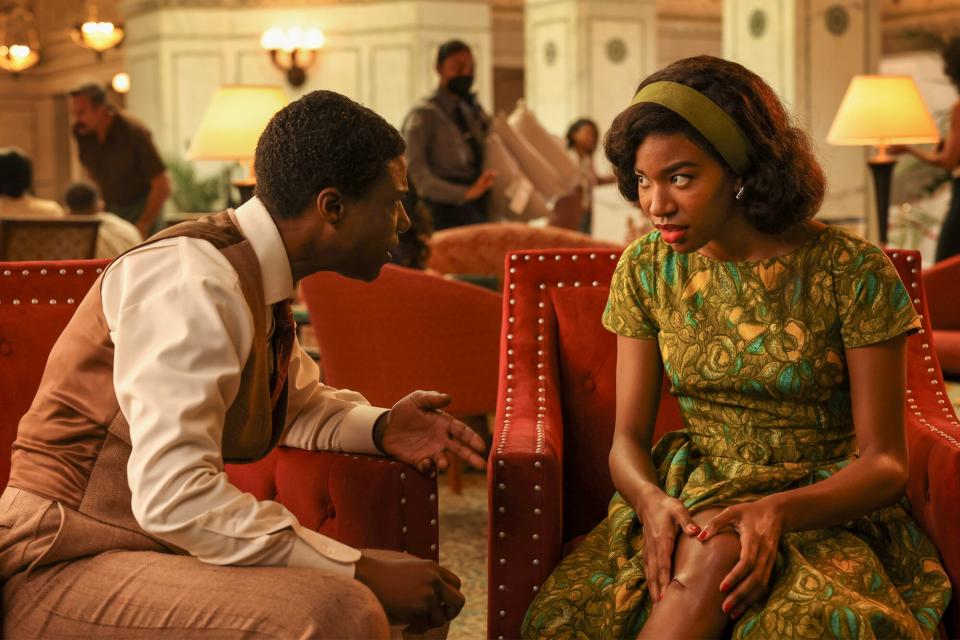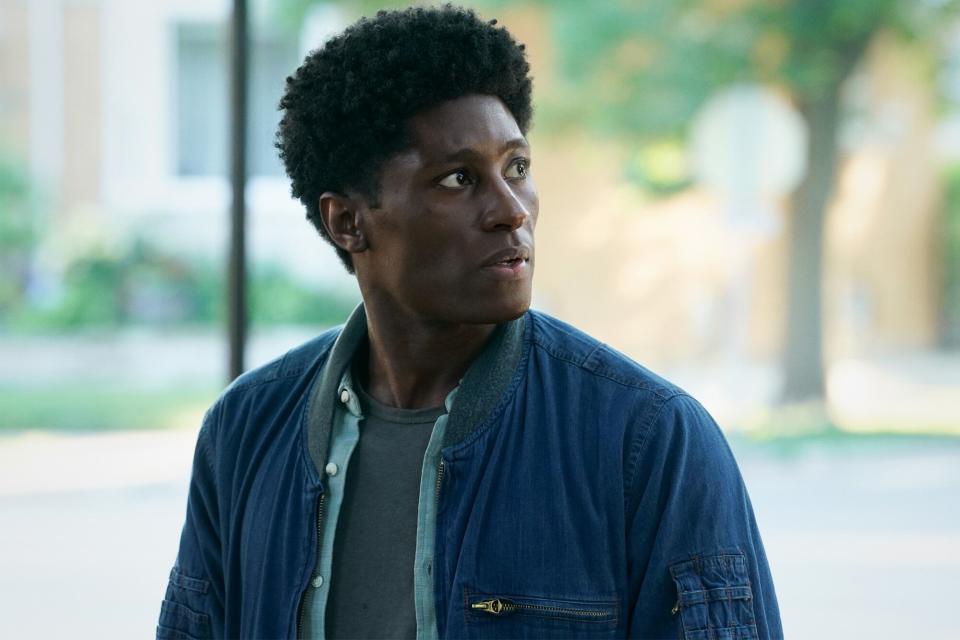How the CW's 4400 'reimagining' compares to the original sci-fi series
The CW's 4400 may have been inspired by the original series, but co-showrunners Ariana Jackson and Sunil Nayar are here to warn you that this "reimagining" is a whole new show because of the modern updates they've made to the story.
The new sci-fi series, premiering Monday at 9 p.m. ET/PT, has the same basic premise as the USA Network show that ran from 2004 to 2007: 4,400 marginalized people who vanished without a trace during the past 100 years return in an instant in the present day. They have no memory of what happened to them or why they were seemingly abducted, and they haven't aged a day. As some begin to develop powers, the government races to analyze the potential threat, while "the 4400," as they're called, must grapple with the mystery of what they've been through and why they've reappeared. But this new version of the series has an added layer that excited Jackson and Nayar, both fans of the original.

Adrian S. Burrows Sr./The CW T.L. Thompson as Andre and Jaye Ladymore as Claudette on '4400'
"I give all credit to those who created it, because it's just such an amazing, wonderful premise," Jackson tells EW. "But it really felt so exciting because it is about time travel, but setting it in 2021 — where we are now feels like a very pivotal time in our nation's history — it feels really interesting to examine how we got here through all these people from different eras. It feels like a really interesting time to set it in to really examine how we came to be here and now in 2021, a time where we're really seeing a lot of the cracks in our society and cracks in what we built, and how can we look at how those things might have been built wrong to lead us here to today."
Jackson loves that the mandate for the CW's version of 4400 was to tell the story "from a Black perspective, which is part of why I was so excited about it. What we're really getting into is the history and the legacy of white supremacy in our country and how it hasn't been fixed and how that has led to where we are now."
While the story has a solid grounding in science fiction, Jackson and Nayar wanted to approach everything "through characters, through a character study," she adds, revealing that the show will spend more time in the characters' original eras to further demonstrate that. "Looking at it through the lens of people who have lived through these different times in our nation's history, and seeing sort of the same thing play out in a different way, with a different backdrop, with different technology, but it really all is the same thing and there's a reason why we're in the moment we're in. And that's what feels so exciting about being able to tell this story now, and this way."
Using the creative tool of time travel to make a statement about the present is something that Nayar was drawn to. "What I think is really compelling about what this show is, as opposed to lots of other sci-fi shows that are about world building, this one is firmly grounded in the present, which I think is really a different kind of context for shows like this," he says. "So the idea of people having powers is reflected with people who do have the power. And I think that that is really one of the most compelling things about this show, is that it's really taking the concept of science fiction but placing it in the world in which we live."

Lori Allen/The CW Joseph David-Jones as Jharrel on '4400'
One of the biggest changes made from the original is how 4400 depicts the role of the government. "We definitely wanted to reflect the government as it's become now in 2021 versus how it was perceived when the original aired," Jackson says. "We didn't necessarily want to have agents with guns be the people looking after our people, and that's why our main government people working with the 4400 are a social worker and a parole officer who have been brought brought into this duty."
She continues, "We wanted to show how the government today might treat people who are strangers or land here unexplained. And how the government does that in reality now with people and how they might really legitimately approach it with people, even in this sort of fantastical story. In the original they let the people go, right in that first episode, and we just didn't feel like that felt like what the government would do today if people showed up out of nowhere and seem to be suspicious or be foreigners or strangers or something."
Nayar agrees, adding, "There's a line that a character named Claudette [Jaye Ladymore] says in the pilot — and she's come from 1950s, from the birth of the civil rights movement — 'It isn't that different.' Even though time has passed, a lot hasn't changed, and the people are seeing that we have so much progress still to be made even when we thought we were going to be making progress. Even though the divisions are sort of more boldly obvious now, they've always been there, and the people who have been disenfranchised by those divisions have always felt both the oppression of what that means to them and the desire to not be under that oppression. That's what's also really fascinating, is how a lot has changed and a lot has not changed at all."
Related content:

 Yahoo Movies
Yahoo Movies 